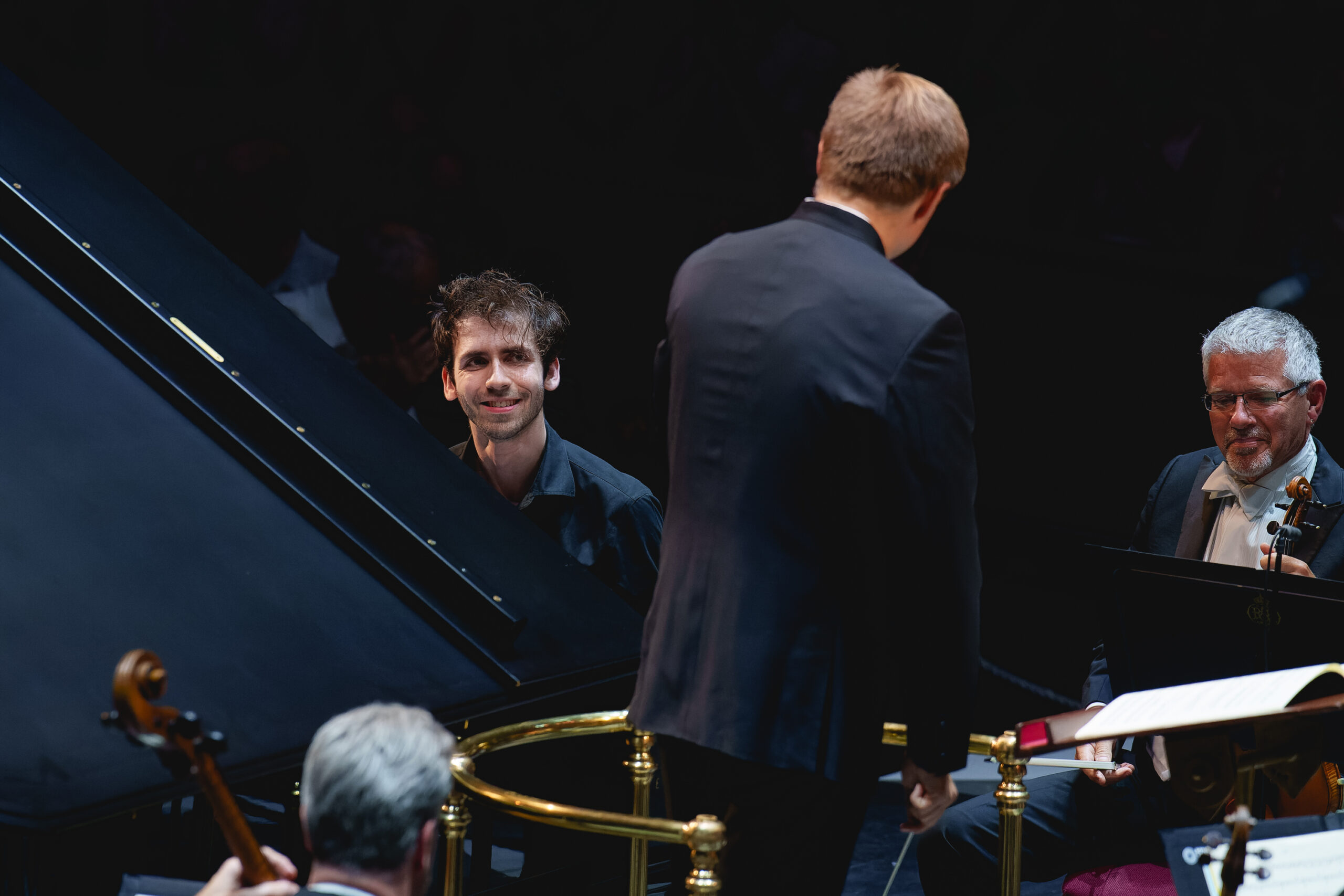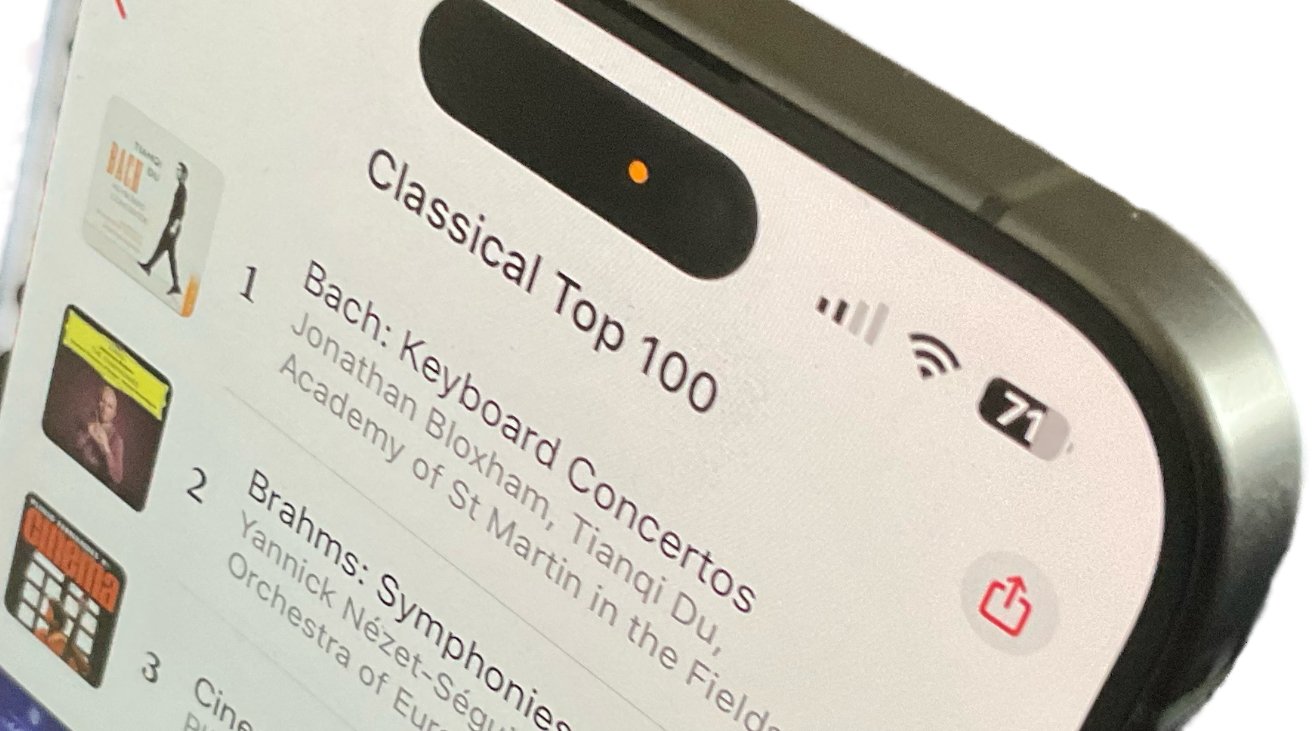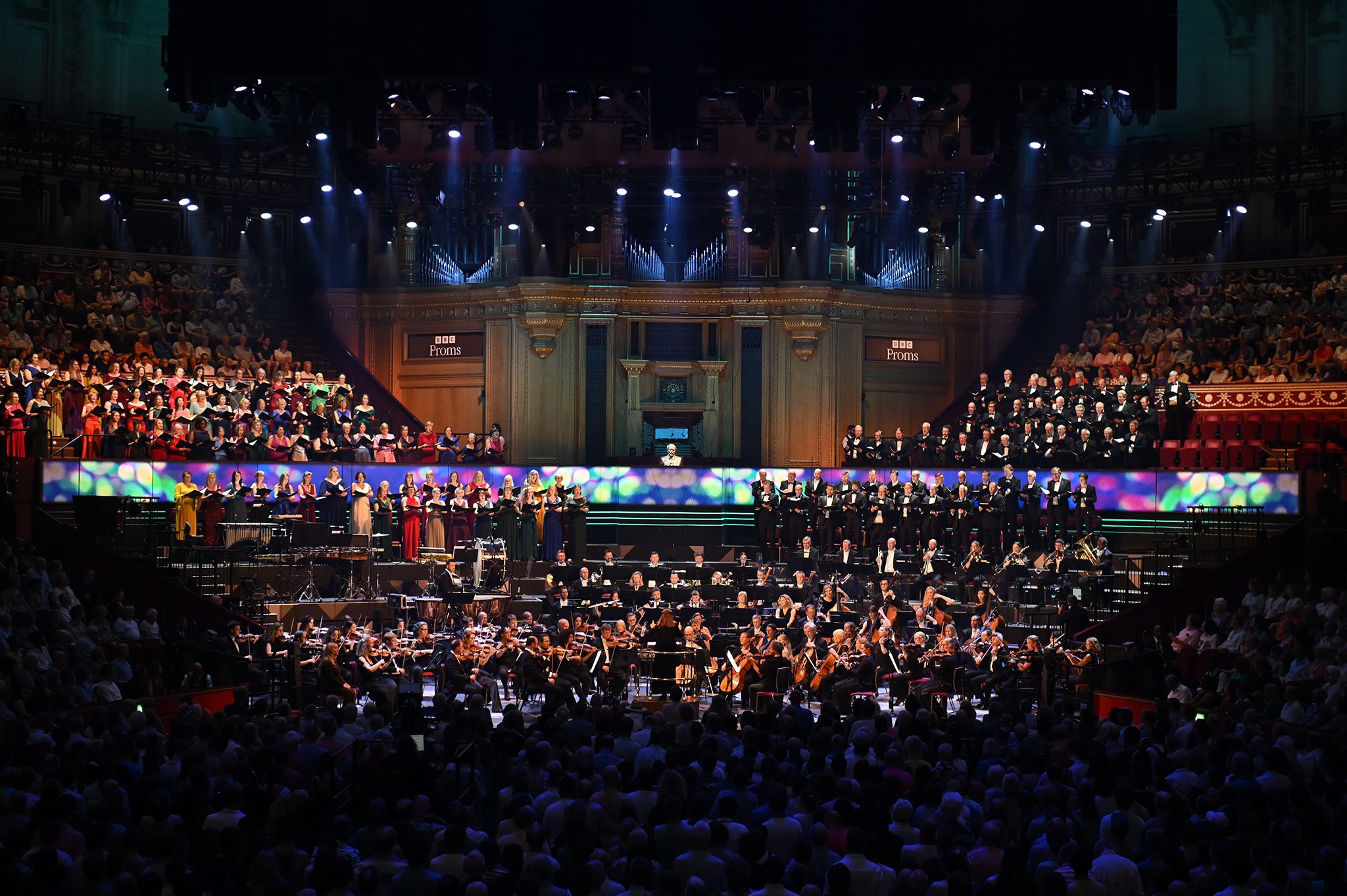From my position in the stalls (further around the horseshoe than I am normally) a different Proms experience is to be had. Sat in row 7 seat 52, I am aware of the young couple sat in front of me in the first flush of love. The man sat next to me has suggested that my bag is too big and should be stored underneath my seat and not in front of me. The earnest friends sat behind make anodyne comments peppered with superlatives about concerts they’ve attended so far in the season. And across the aisle to my right, an elderly couple choose the quietest moment in the Beethoven piano concerto to rifle through a sturdy holdall in search of a crinkly bag. These aren’t distractions. They merely elevate focus and increase anticipation.

The stage seems further away from here too. From my vantage point, I have sight of the back end of the arena where eager resolute Prommers crane their necks to get a view of the far-away band. Soloist, orchestra and conductor momentarily appear like miniatures in a tilt-shifted picture, the sight at odds with the powerful all-encompassing emanating from the opposite end of the Royal Albert Hall.
Ligeti’s Lontano is a strangely uplifting sequence of long held notes that merge into one another and has the effect of calming the audience and focussing their attention still further. It sounds like an absolute bastard to play – all those unison notes played on different instruments needing to be precisely in-tune with one another – reminiscent of my orchestral playing when the only person in the woodwind section unable to detect my intonation was off was me. Come the end of the piece I feel like I’ve settled into a more attentive state. A deft piece of programming on the part of the Royal Philharmonic.

Beethoven’s Piano Concerto No. 4 is a riveting listen, this in part down to pianist Alexandre Kantorow’s presence on stage and the connection he makes with conductor Vasily Petrenko (just take a look at the photography). Kantorow is unfussy. Perched in front of the keyboard, in those moments when he’s not playing he has the appearance of an awkward schoolboy unperturbed by convention. His technique is deliberate, precise and fluid minus distracting theatrics. There is attack, exactness and clarity to the sound he produces, underpinned with delicious intention. Decorative passages in the solo part resemble cascading waterfalls, echoed in the woodwind responses. The quiet sections, in particular in the second movement, are hushed and fragile. The orchestra pits itself against these quiet resolute statements at the beginning of the second movement with an entirely muscular sound, as though we’re listening to operative recitative. It is Kantorow and Petrenko’s creation that helps me finally make sense of this concerto. One never wants to say this is the ‘best’ I’ve ever heard this work but, given that I’m not a big Beethoven fan and always approach a piano concerto by him on the programme with a mild sense of dread, this was Quite Something.

Less dread with Shostakovich 10. The near hour-long symphony promises a journey through abstract thought, populated by bleak vistas and angry (some of it sarcastic) cacophony, with the concluding resolution saved for the final few bars of this epic work.
The Royal Philharmonic Orchestra dazzled throughout the concert with their commitment and stamina, but particularly so in the symphony. In the strings, every player front and back worked hard to produce a muscular sound in the fortissimos that growled and roared, in other places screeching tremolandos took on an electronic feel. In the terrifyingly breakneck second movement scherzo, the articulation was dry and razor-sharp, the scurrying woodwind demonic and the brass dazzling. The concluding phrase felt like a musical slap in the face. The same breathtaking power in the final movement made this a tour-de-force performance, demonstrating Petrenko’s transformative influence over the RPO. There are few guarantees in classical music programmes at the moment, but I’m increasingly of the mind that the partnership of the RPO and Petrenko is one of them.
Listen via BBC Sounds to the Royal Philharmonic Orchestra and Alexandre Kantorow at the BBC Proms 2023 playing Beethoven Piano Concerto No.4 and Shostakovich 10



